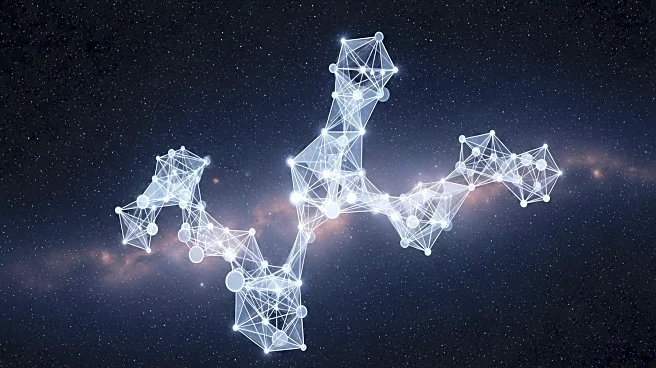What's Happening?
As the Nobel Prize announcements approach, several groundbreaking scientific advances are highlighted as potential candidates for recognition. These include developments in obesity treatment, quantum computing, cystic fibrosis treatment, gut microbiome understanding, and next-generation DNA sequencing. Despite their significant impact, these advances face challenges in being recognized due to the collaborative nature of modern scientific research, which often involves numerous contributors. The Nobel Prize rules, established by Alfred Nobel, limit awards to a maximum of three individuals per prize, complicating recognition for large-scale collaborative efforts.
Why It's Important?
The inability to recognize collaborative scientific efforts with Nobel Prizes underscores a growing challenge in the scientific community. As research becomes increasingly interdisciplinary and collaborative, the traditional Nobel Prize criteria may not adequately reflect the contributions of all involved. This has implications for how scientific achievements are valued and incentivized, potentially affecting funding and support for large-scale projects. Recognizing these advances could lead to increased investment in fields like healthcare, quantum computing, and genetic research, driving further innovation and societal benefits.
What's Next?
The Nobel Prize announcements will begin with the physiology or medicine prize, followed by physics, chemistry, literature, and peace prizes. As these awards are revealed, discussions may arise regarding the need to adapt Nobel Prize criteria to better accommodate collaborative scientific achievements. Stakeholders in the scientific community may advocate for changes to ensure that groundbreaking work involving multiple contributors receives appropriate recognition. This could lead to broader conversations about how scientific excellence is defined and rewarded in the modern era.
Beyond the Headlines
The challenges faced by Nobel Prize committees in recognizing collaborative efforts highlight broader ethical and cultural dimensions in scientific recognition. As science becomes more globalized, the criteria for awards like the Nobel Prize may need to evolve to reflect the diverse and interconnected nature of modern research. This could prompt a reevaluation of how scientific contributions are measured and celebrated, potentially leading to new award structures that better capture the collaborative spirit of contemporary science.










